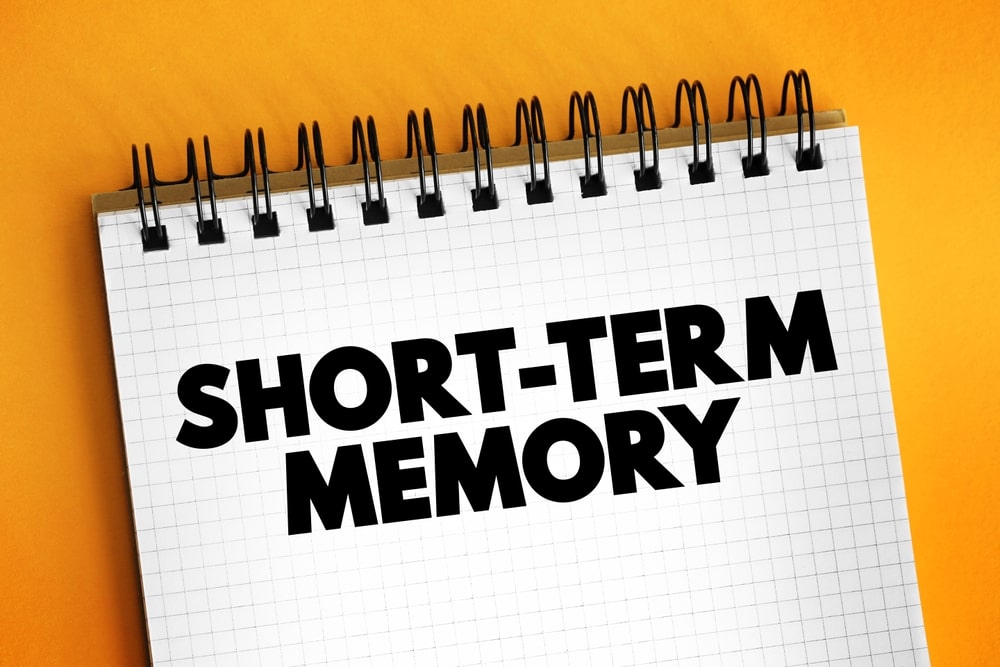Has your short-term memory declined? Let’s find out why!
Do you ever need to remember where you left your keys or struggle to recall what you just read? If so, you’re not alone. Short-term memory is like a mental sticky note, vital for remembering everyday tasks and information.
Yet, for many of us, it slips away more quickly than we’d like. But fear not! Behind this frustrating phenomenon lie some simple reasons that doctors have uncovered.
Today, Indulging Health is diving into the fascinating world of the mind and discovering the explanations for why your short-term memory might be taking a hit.
From lifestyle habits to underlying health issues, understanding these factors can shed an important light on why we sometimes feel a bit forgetful. So, get comfortable, and let’s explore the mysteries of our short-term memory together!
…But first, what EXACTLY is short-term memory?

Short-term memory and how it works
You need Short-term memory to accomplish your nearest goals, explains an expert in the Department of Neurology at Cedars-Sinai. That might mean completing tasks throughout the day, remembering someone’s name or phone number, or recalling where you ditched your keys when you got home.
Short-term memory is about more than quickly identifying new info. There are actually three phases. You have to register the information, store it, and retrieve it. Registering means that you’re paying attention to begin with.
Storing the information means you’ve filed it away in your brain. Retrieval is the power to reaccess the memory. Any of these steps can break down.
Dementia
Before you panic, there IS some good news: Most healthy people won’t have a degenerative neurological condition causing short-term memory loss, according to doctors. But Alzheimer’s or dementia is a possibility in some groups of individuals.
If you’re over 60 years old and have risk factors like high blood pressure, diabetes, or obesity, then you could be more prone to issues and need to be evaluated.
Inactivity
Blood flow is good for your brain because it keeps it young. Exercising will boost blood flow to the brain. If you remain active, you’ll have a better memory, says the author of “Memory Rescue.”
Medics suggest daily exercise; it doesn’t have to be intense, either. A half-mile or mile run each day is better than a 10-mile run one day a week.
Lyme disease
Lyme disease is generally transmitted through a tick bite and causes early symptoms like fever, headache, chills, and fatigue, according to the CDC.
Later on, some individuals may notice short-term memory issues without treatment. Doctors point out that this may include focus, attention, and organization trouble.
Mental health conditions
Most people tend to miss the fact that they might be depressed. But if you’re suffering from anxiety, depression, or chronic stress, you should get help, or your memory can also pay the price.
These conditions may all hurt your brain. Getting relief will improve your life and outlook and save your brain.
An unhealthy diet
Inflammation is harmful to your body AND your brain. According to experts, the higher the inflammation levels in your body are, the worse your memory will be.
Eating an anti-inflammatory diet, like the Mediterranean version, and avoiding foods that raise it, like highly processed foods and loads of sugar, is vital. They also recommend taking probiotics and fish oil.
Substance abuse
With the legalization of recreational marijuana in the US, many individuals assume that the drug isn’t damaging. But, certain doctors call this a toxin that harms memory.
Marijuana decreases every area of the brain and ages it. On average, smokers have brains three years older than those who have never touched the stuff. Alcohol abuse can also hurt your memory.

Medication
If you lead a healthy lifestyle, which includes exercise, eating right, and consuming alcohol in moderation and other substances that can harm memory but still feel like your memory is failing, talk to your physician about your medications.
This goes for prescription AND over-the-counter meds, advise experts. Cholesterol drugs, high blood pressure pills, painkillers, and sleeping pills are among the medications that can trigger memory problems.













